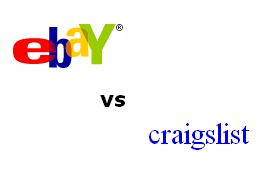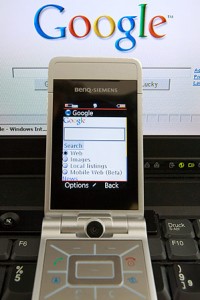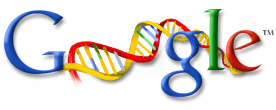A discussion about Yahoo and Microsoft with Andrew Ross Sorkin of The New York Times and Michael Arrington of TechCrunch.com. Yahoo’s shares plunged 20% in early trade in New York after software giant Microsoft scrapped its three-month-old bid to buy the internet firm. View the video here.
Category: Business
This page talks about anything related to business, economy, and money.
Rebecca wrote a good post over at SEOmoz about online Press Releases. The post is quite lengthy so I just picked what I think are the key points:
- Spend a lot of time on the headline. It may be your only chance to sell the news to your audience. The subhead/summary should enhance the headline.
- The body should answer who/what/where/when/why.
- Include 2-3 quotations from principals. The media and bloggers are attracted to these.
- Use a journalistic voice (just the facts).
- Don’t sell—this isn’t an advertisement.
- Know which keywords and phrases you want the press release to rank for, and only focus on 2 or 3 keywords/phrases per release.
- Use the keywords in the headline, subheader, and early in the body of the release.
- Link back to the relevant pages in your site using the keywords as anchor text.
Read the full post here.
Microsoft announced today that it was withdrawing their offer to acquire Yahoo. Microsoft raised its bid from $31/share to $33/share (that’s an extra $5 billion) but Yahoo didn’t want to settle for less than $37/share.
Microsoft CEO Steve Ballmer also confirmed that they will not go hostile by taking their offer directly to Yahoo’s stakeholders.
Microsoft, who intended to buy Yahoo to get bigger in the online ad business says they can make it without Yahoo. While it’s probably true, I think it’s going to take Microsoft a few years and billions of dollars.
I am really disappointed as I hoped Microsoft would become the first real competition to the evil Google.
 For those of you who don’t know, eBay bought a minority ownership stake (28.4%) in Craigslist nearly four years ago as part of a strategy to buy up classified advertising services both in the United States and Europe.
For those of you who don’t know, eBay bought a minority ownership stake (28.4%) in Craigslist nearly four years ago as part of a strategy to buy up classified advertising services both in the United States and Europe.
In a lawsuit filed under seal in Delaware Chancery Court last week, eBay alleged that Craigslist held “clandestine” directors’ meetings in recent months to dilute eBay’s 28.4% stake to 24.85%, or less than a quarter of the company.
 Kevin Eyres, LinkedIn’s managing director for LinkedIn Europe told IDG that LinkedIn has a CPM of $75 for the U.S. and up to $75 for the UK. Like Michael Learmonth, I have a hard time believing this is an average CPM, but I certainly believe that LinkedIn has a much better CPM than the MySpace and FaceBooks out there.
Kevin Eyres, LinkedIn’s managing director for LinkedIn Europe told IDG that LinkedIn has a CPM of $75 for the U.S. and up to $75 for the UK. Like Michael Learmonth, I have a hard time believing this is an average CPM, but I certainly believe that LinkedIn has a much better CPM than the MySpace and FaceBooks out there.
Indeed, LinkedIn users’ average age is 41 and their average income is $110,000! Not too bad… especially compared to the cheap and young users of MySpace.
 Is Microsoft Google’s biggest threat? Nope. Is it Yahoo? Think again… Ben Kunz at Business Week wrote a very good article about how Google is actually its own biggest threat.
Is Microsoft Google’s biggest threat? Nope. Is it Yahoo? Think again… Ben Kunz at Business Week wrote a very good article about how Google is actually its own biggest threat.
Google makes money by having ads displayed on your screen, whether when you’re doing a search on Google (these ads at the very top and on the side) but also on “affiliate” websites that use Adsense, Google’s advertising platform for publishers. For those of you who don’t know, publishers can make money from Google when they display Google ads on their site. Some people make really good money! Anyways.
![]() Yahoo Inc posted a better-than-expected quarterly profit on Tuesday but failed to do well enough to convince many on Wall Street that Microsoft Corp needs to raise its takeover bid.
Yahoo Inc posted a better-than-expected quarterly profit on Tuesday but failed to do well enough to convince many on Wall Street that Microsoft Corp needs to raise its takeover bid.
“Our board and management team continue to be open to any and all alternatives, including a Microsoft deal. ” Said CEO Jerry Yang.
For the 3rd year in a row, Google has grabbed the top spot in a list of the top most powerful global brands. Its brand value grew 30 percent since last year’s report to surpass $86 billion.
Microsoft, for the record, once again came in third, with a $70.9 billion brand value. (General Electric once again took second place, at $71.4 billion).
 After investing $4.4 million in 2007 in 23andMe, a genetic screening company, Google just invested in a new DNA screening startup called Navigenics.
After investing $4.4 million in 2007 in 23andMe, a genetic screening company, Google just invested in a new DNA screening startup called Navigenics.
 My friend Kriss forwarded me a link to a video showing the story of stuff. I’m usually very cautious at watching what Kriss sends me because she’s a hippie and her ideal of “saving the planet” is just too much for me sometimes.
My friend Kriss forwarded me a link to a video showing the story of stuff. I’m usually very cautious at watching what Kriss sends me because she’s a hippie and her ideal of “saving the planet” is just too much for me sometimes.
But I clicked and watched the full 20 minute video, which, I have to admit, was really good.